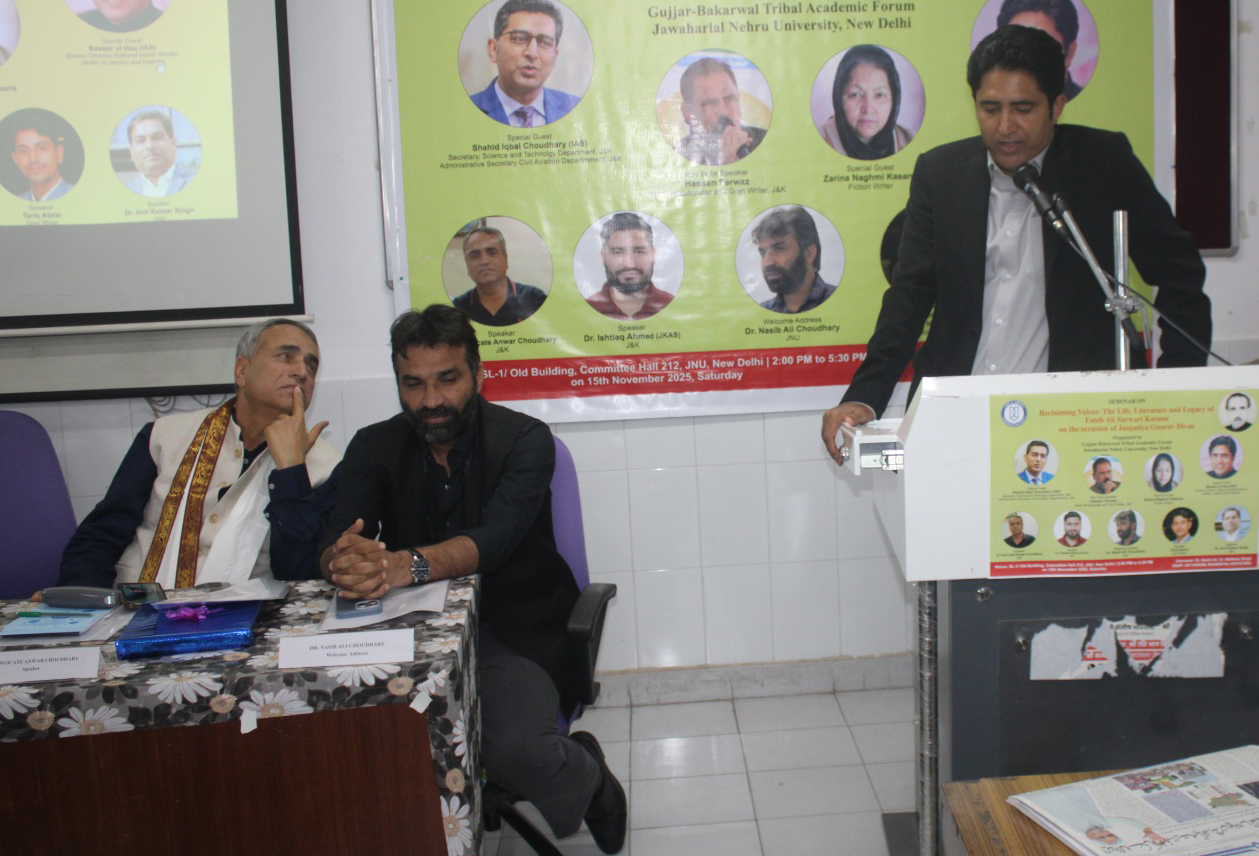 Early Times Report Early Times Report
JAMMU, Nov 16: The Gujjar-Bakarwal Tribal Academic Forum, Jawaharlal Nehru University (JNU), organized a meaningful seminar titled "Reclaiming Voices: Life, Literature and Legacy of Fateh Ali Sarwari Kasana" on the occasion of Janjatiya Gaurav Diwas. The event brought together scholars, writers, and bureaucrats to reflect upon the literary contribution, grassroot activism, and enduring legacy of the noted tribal scholar, poet, journalist and social reformer, Fateh Ali Sarwari Kasana.
The programme commenced with a welcome address by Dr. Nasib Ali Choudhary, Assistant Professor, JNU, who highlighted the significance of commemorating tribal icons and emphasized the need for academic platforms to amplify marginalized voices.
The seminar featured insightful presentations from a distinguished panel of speakers including Dr. Anil Kumar Singh, Assistant Professor, JNU; Dr. Ishtiaq Ahmed Shauq (JKAS); and Advocate Anwar Choudhary. Each speaker discussed various dimensions of Sarwari Kasana's contributions ranging from his commitment to tribal rights to his pioneering work in journalism.
The keynote address was delivered by Hasan Parwaz Choudhary, who offered an in-depth exploration of Sarwari Kasana's life, literary achievements, and his transformative role as a community advocate. He underscored Sarwari Kasana's dedication to uplifting the tribal community of Jammu and Kashmir through education, cultural preservation, and social awareness. He strongly advocated for communal harmony and National Integration.
A poignant and personal touch was added by Zarina Naghmi Kasana, daughter of the late Sarwari Kasana. In her address, she shed light on her father's lifelong struggle, his unwavering resolve and the sacrifices he made for the advancement and dignity of the tribal people of the region. She also added that her late father was known as Martin Luther King of Gujjar Bakarwal community of Jammu and Kashmir.
The event was graced by Special Guest, Shri Baseer-ul-Haq Choudhary, IAS, who appreciated the organizers for bringing much-needed academic focus to the legacy of tribal scholars, leaders and emphasized the importance of documenting their contributions for future generations. |
